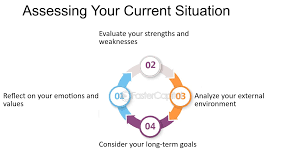Effective study scheduling is a crucial component of academic success. A well-structured study schedule helps manage time efficiently, reduces stress, and improves retention of material. Whether you’re a student preparing for exams, a professional seeking to acquire new skills, or someone balancing multiple responsibilities, creating a study schedule that works can make a significant difference. In this guide, we will walk you through the essential steps to create a study schedule that maximizes productivity and supports your learning goals.
1. Assess Your Current Situation

Before you create a study schedule, it’s important to assess your current situation. Understanding your study habits, time constraints, and academic requirements will help tailor your schedule to your needs.
Key Considerations:
- Current Commitments: Identify your existing obligations such as classes, work, and extracurricular activities.
- Personal Preferences: Determine your most productive times of day and preferred study environments.
- Learning Goals: Outline your academic goals and priorities, including upcoming exams, assignments, and projects.
2. Set Clear and Achievable Goals
Establishing clear and achievable goals is the foundation of an effective study schedule. Break down your long-term objectives into smaller, manageable tasks.
Steps to Set Goals:
- Identify Key Objectives: Define what you need to accomplish within a specific timeframe.
- Break Down Tasks: Divide larger goals into smaller tasks or milestones. For example, if preparing for an exam, break down the syllabus into manageable sections.
- Set Deadlines: Assign deadlines to each task to maintain focus and track progress.
3. Choose the Right Scheduling Tools
Selecting the right tools for scheduling can enhance your ability to stay organized and adhere to your study plan.
Scheduling Tools to Consider:
- Digital Calendars: Tools like Google Calendar or Outlook allow you to set reminders and view your schedule across devices.
- To-Do Lists: Apps such as Todoist or Microsoft To Do can help manage daily tasks and deadlines.
- Physical Planners: A traditional planner or wall calendar can be useful for visualizing your study schedule and deadlines.
4. Create a Balanced Study Plan
A balanced study plan includes a mix of study sessions, breaks, and other activities. Ensure that your schedule accommodates all your responsibilities and personal needs.
Components of a Balanced Plan:
- Study Blocks: Allocate specific time blocks for studying each subject or topic. Aim for focused study sessions of 25-50 minutes followed by a short break (Pomodoro Technique).
- Breaks and Downtime: Schedule regular breaks to rest and recharge. Incorporate leisure activities, exercise, and social time into your plan.
- Flexibility: Allow for some flexibility in your schedule to accommodate unexpected events or changes.
5. Prioritize Your Tasks

Effective prioritization ensures that you focus on high-impact tasks and manage your time efficiently.
Steps to Prioritize:
- Use the Eisenhower Matrix: Categorize tasks into four quadrants based on urgency and importance: urgent and important, important but not urgent, urgent but not important, and neither urgent nor important.
- Prioritize High-Impact Tasks: Focus on tasks that have the most significant impact on your goals and deadlines.
- Adjust Priorities: Reevaluate and adjust your priorities regularly based on progress and changing circumstances.
6. Incorporate Active Learning Techniques
Active learning techniques can enhance your understanding and retention of material. Incorporate these methods into your study schedule for more effective learning.
Active Learning Techniques:
- Practice Retrieval: Regularly test yourself on the material to reinforce learning and identify areas for improvement.
- Teach Back: Explain concepts to someone else or pretend to teach the material. This method helps solidify your understanding.
- Use Spaced Repetition: Review material at increasing intervals to improve long-term retention.
7. Monitor Your Progress
Regularly monitoring your progress helps ensure that you stay on track and make adjustments as needed.
Progress Monitoring Tips:
- Track Completed Tasks: Use your scheduling tool to track completed tasks and milestones.
- Assess Learning Outcomes: Evaluate your understanding and performance through quizzes, practice tests, or feedback.
- Adjust Your Schedule: Make adjustments based on your progress and any new priorities or deadlines.
8. Stay Motivated and Avoid Burnout
Maintaining motivation and avoiding burnout are crucial for long-term success. Implement strategies to keep yourself engaged and prevent exhaustion.
Motivation and Burnout Prevention:
- Set Rewards: Reward yourself for completing tasks or reaching milestones. Small rewards can help maintain motivation.
- Maintain a Healthy Lifestyle: Prioritize sleep, nutrition, and exercise to support overall well-being and productivity.
- Seek Support: Connect with peers, mentors, or study groups for encouragement and accountability.
9. Evaluate and Refine Your Schedule
Periodically evaluate your study schedule to ensure its effectiveness and make necessary refinements.
Evaluation and Refinement:
- Reflect on Effectiveness: Assess what’s working and what isn’t in your schedule. Consider factors such as productivity, stress levels, and goal achievement.
- Gather Feedback: Seek feedback from peers or mentors on your study habits and schedule.
- Make Adjustments: Refine your schedule based on your reflections and feedback to improve its effectiveness.
10. Implement Technology and Automation

Leveraging technology and automation can streamline your study schedule and enhance efficiency.
Technology and Automation Tools:
- Automated Reminders: Set automated reminders for study sessions, deadlines, and breaks using calendar apps or to-do list tools.
- Focus Apps: Use apps like Focus@Will or Forest to minimize distractions and maintain concentration during study sessions.
- Time Tracking Tools: Track your study time and productivity with tools like Toggl or Clockify.
Conclusion
Creating a study schedule that works involves careful planning, goal setting, and time management. By assessing your current situation, setting clear goals, choosing the right tools, and incorporating active learning techniques, you can develop a study plan that maximizes productivity and supports your academic success. Regularly monitoring your progress, staying motivated, and utilizing technology can further enhance the effectiveness of your schedule. With these strategies, you’ll be well-equipped to achieve your learning objectives and maintain a balanced approach to your studies


